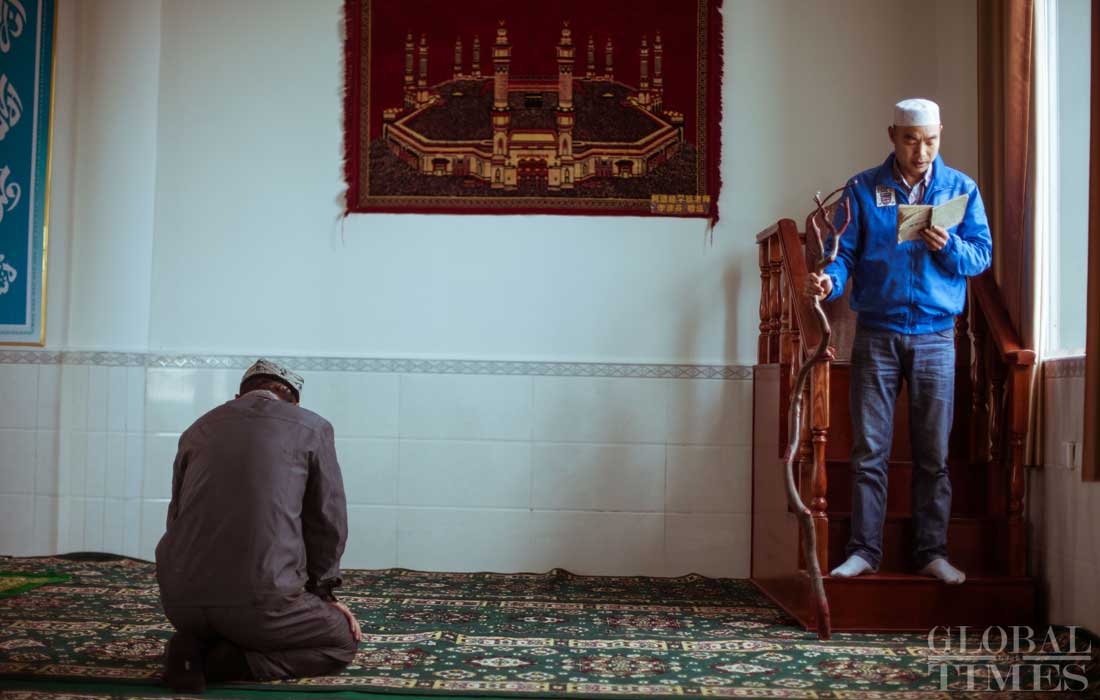Editor's Note:
In Fengshu town of Changde, Central China's Hunan Province, lies the largest number of Uyghurs outside of Northwest China's Xinjiang Uyghur Autonomous Region, where the minority has lived in harmony with Han and other ethnic groups for six centuries.
Since their migration, some of their traditional customs have fallen out of practice in the community. However, government-led and civil efforts are underway to help them reconnect with their culture and religion.
 Uyghurs visit the mosque in Fengshu every Friday. Photo: Li Hao/GT
Uyghurs visit the mosque in Fengshu every Friday. Photo: Li Hao/GT 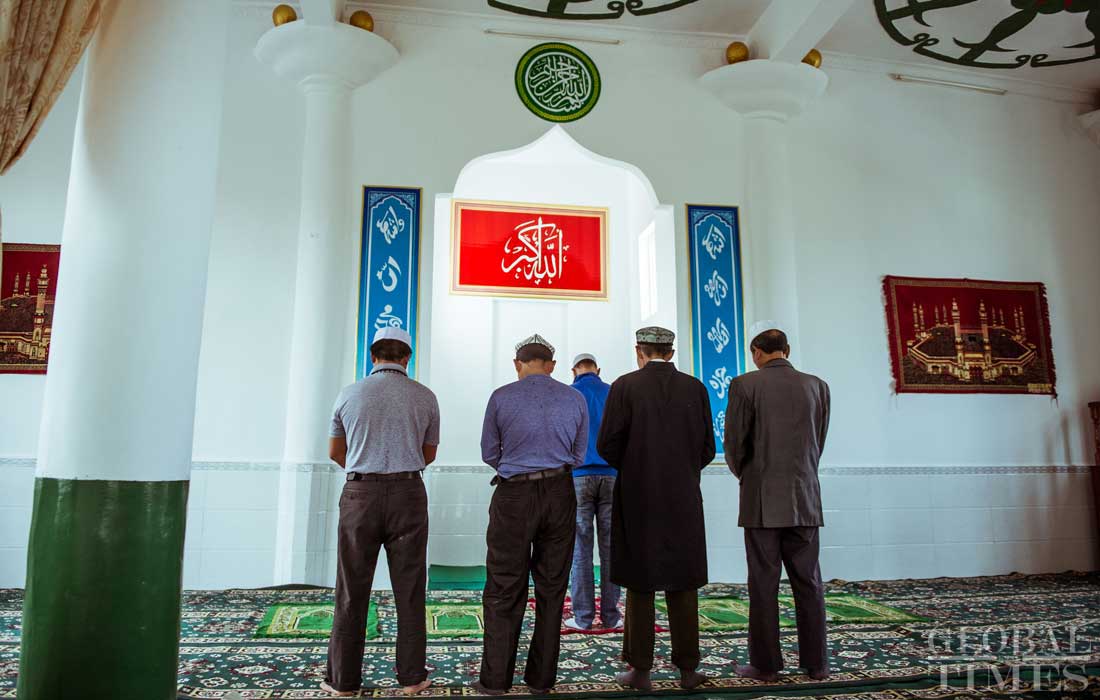 Uyghurs visit the mosque in Fengshu every Friday. Photo: Li Hao/GT
Uyghurs visit the mosque in Fengshu every Friday. Photo: Li Hao/GT 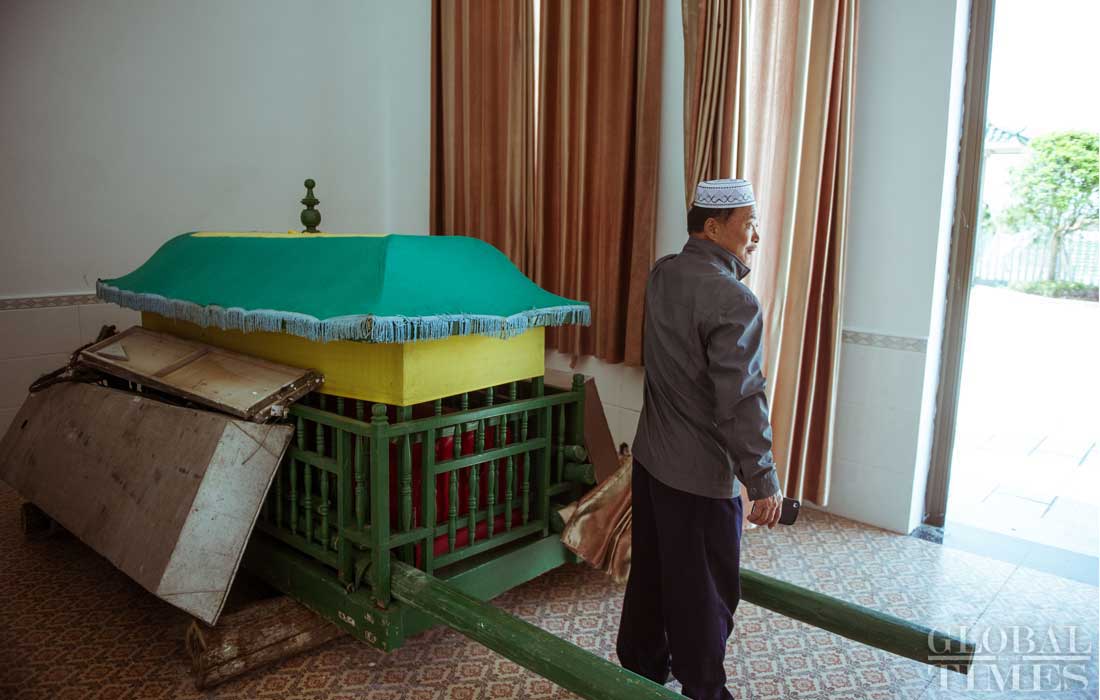 A coffin used during funeral processions is stored at the Fengshu Mosque. Photo: Li Hao/GT
A coffin used during funeral processions is stored at the Fengshu Mosque. Photo: Li Hao/GT  Local resident Jian Linxin, 60, sweeps in front of the township's mosque. Photo: Li Hao/GT
Local resident Jian Linxin, 60, sweeps in front of the township's mosque. Photo: Li Hao/GT 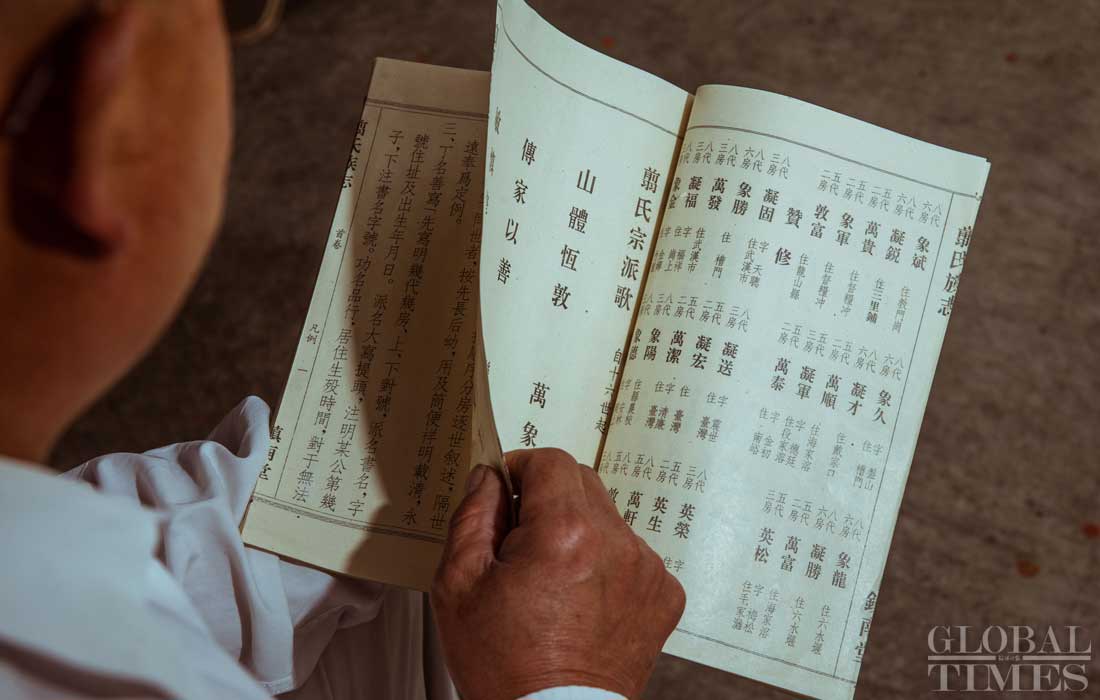 Local resident Jian Xiangdang flips through a book outlining the history of his family compiled in 1996. Jian runs a rural inn in Fengshu.
According to historical records, the surname "Jian" was bestowed by the Ming Dynasty (1368-1644) Emperor Zhu Yuanzhang upon Uyghur general, Hala Bashi from Turpan, who was sent to Hunan in the 14th century to crush revolts and guard the nation's southern borders. Jian is now a common surname in the township. Photo: Li Hao/GT
Local resident Jian Xiangdang flips through a book outlining the history of his family compiled in 1996. Jian runs a rural inn in Fengshu.
According to historical records, the surname "Jian" was bestowed by the Ming Dynasty (1368-1644) Emperor Zhu Yuanzhang upon Uyghur general, Hala Bashi from Turpan, who was sent to Hunan in the 14th century to crush revolts and guard the nation's southern borders. Jian is now a common surname in the township. Photo: Li Hao/GT 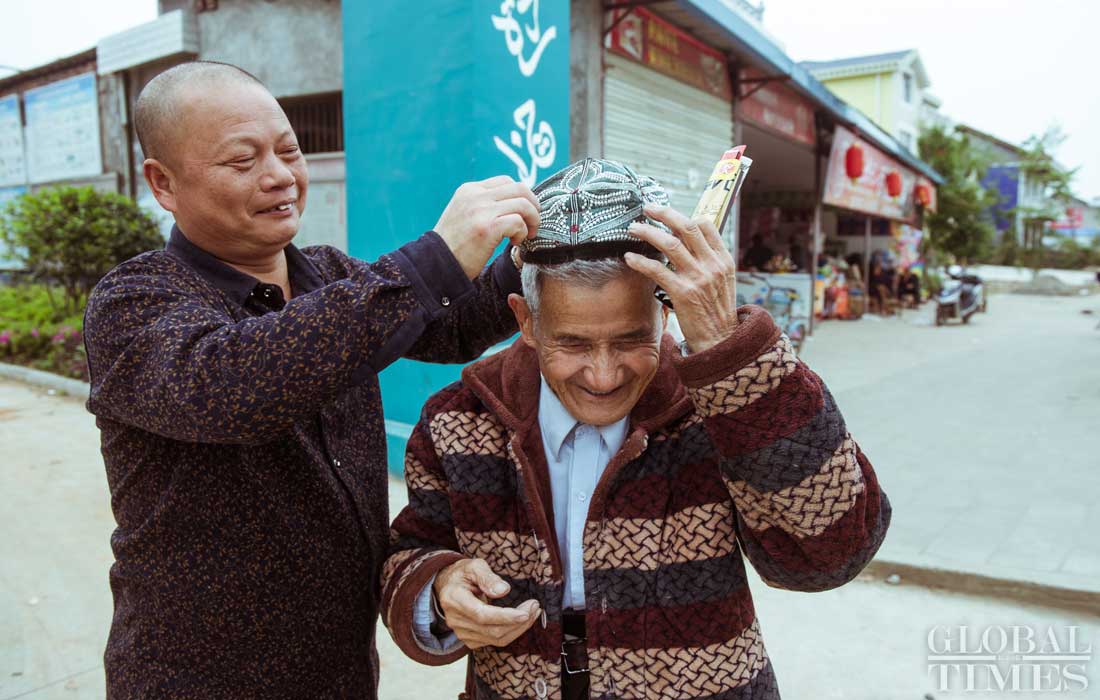 Jian Xiangdang (left) puts a traditional Uyghur hat on the head of his 83-year-old uncle, Jian Yinbao. Elder Jian has been called a “living cultural fossil” among Uyghurs living in Central China. Photo: Li Hao/GT
Jian Xiangdang (left) puts a traditional Uyghur hat on the head of his 83-year-old uncle, Jian Yinbao. Elder Jian has been called a “living cultural fossil” among Uyghurs living in Central China. Photo: Li Hao/GT 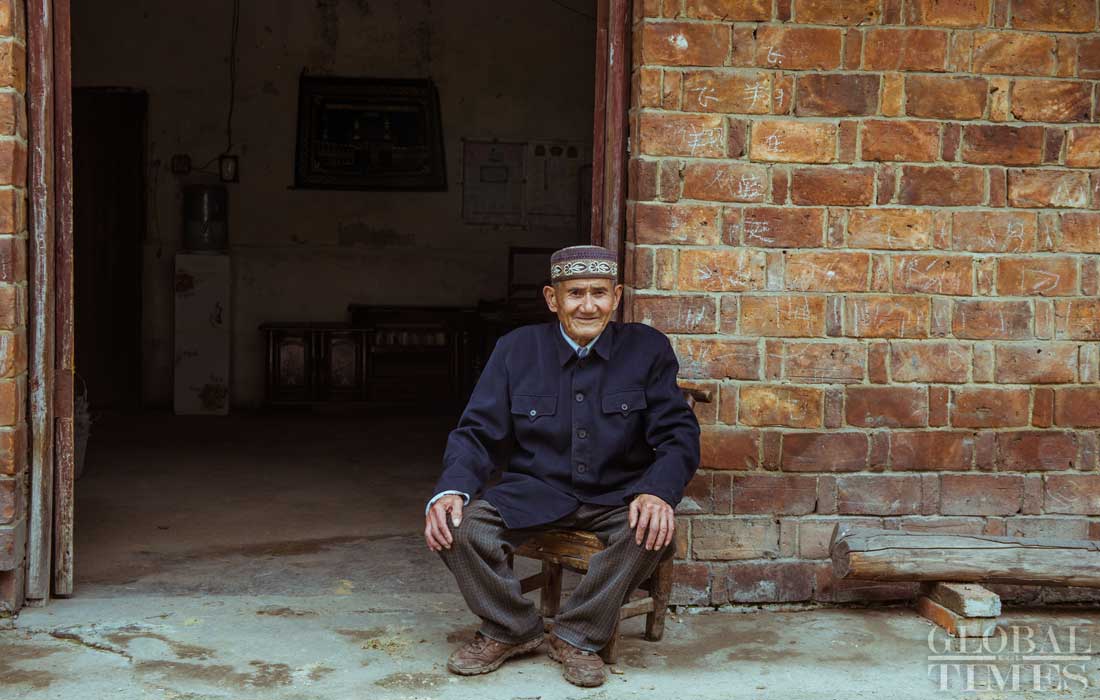 Jian Yinbao, 83, has been called a “living cultural fossil” among Uyghurs living in Central China. Photo: Li Hao/GT
Jian Yinbao, 83, has been called a “living cultural fossil” among Uyghurs living in Central China. Photo: Li Hao/GT 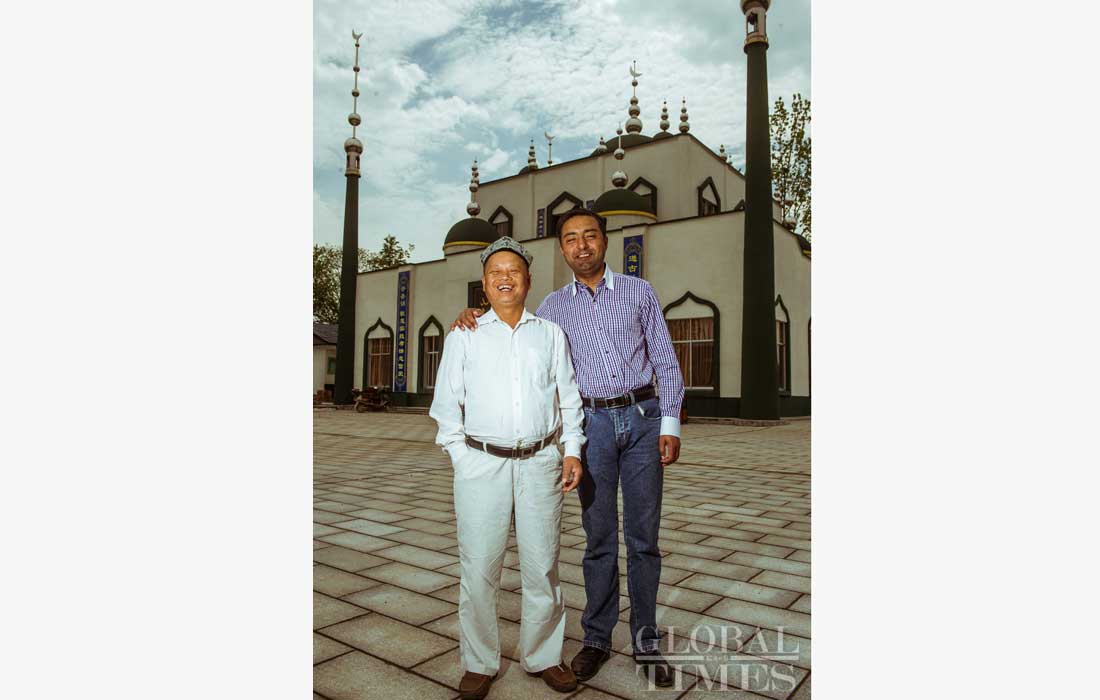 Abudu (right) from Urumqi, Xinjiang, poses for a photo with Jian Xiangdang outside his home in Fengshu. Abudu said he gets a sense of belonging in Fengshu, and that Muslims worldwide are one big family. Photo: Li Hao/GT
Abudu (right) from Urumqi, Xinjiang, poses for a photo with Jian Xiangdang outside his home in Fengshu. Abudu said he gets a sense of belonging in Fengshu, and that Muslims worldwide are one big family. Photo: Li Hao/GT
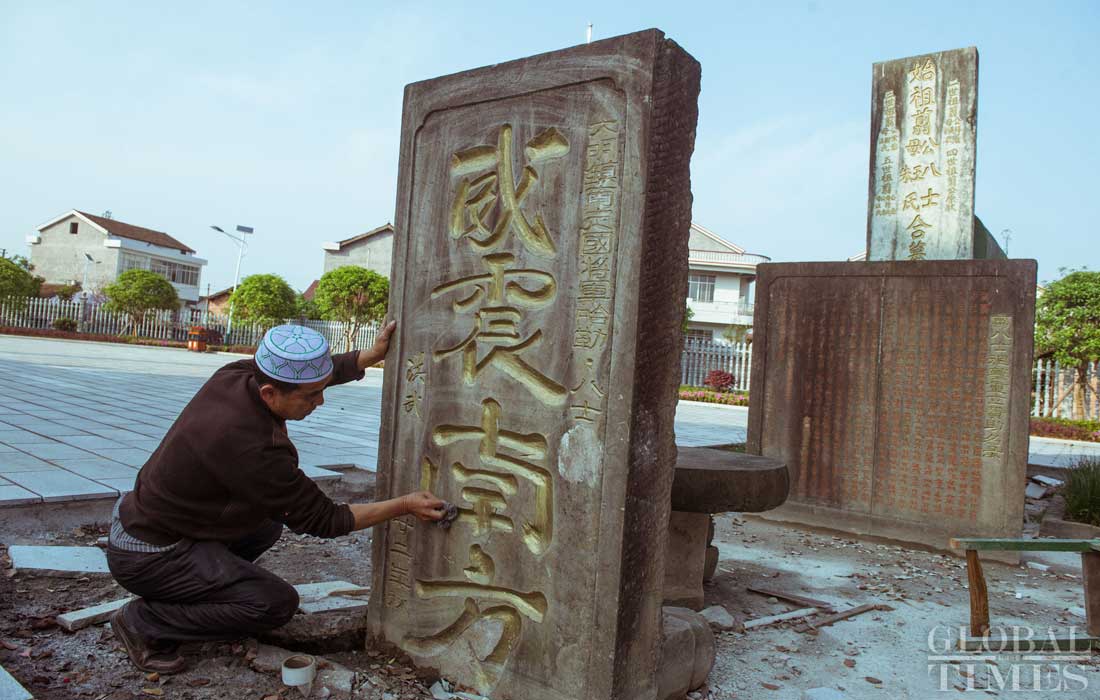 Jian Linxin, 60, cleans a headstone at his ancestral plot. Photo: Li Hao/GT
Jian Linxin, 60, cleans a headstone at his ancestral plot. Photo: Li Hao/GT 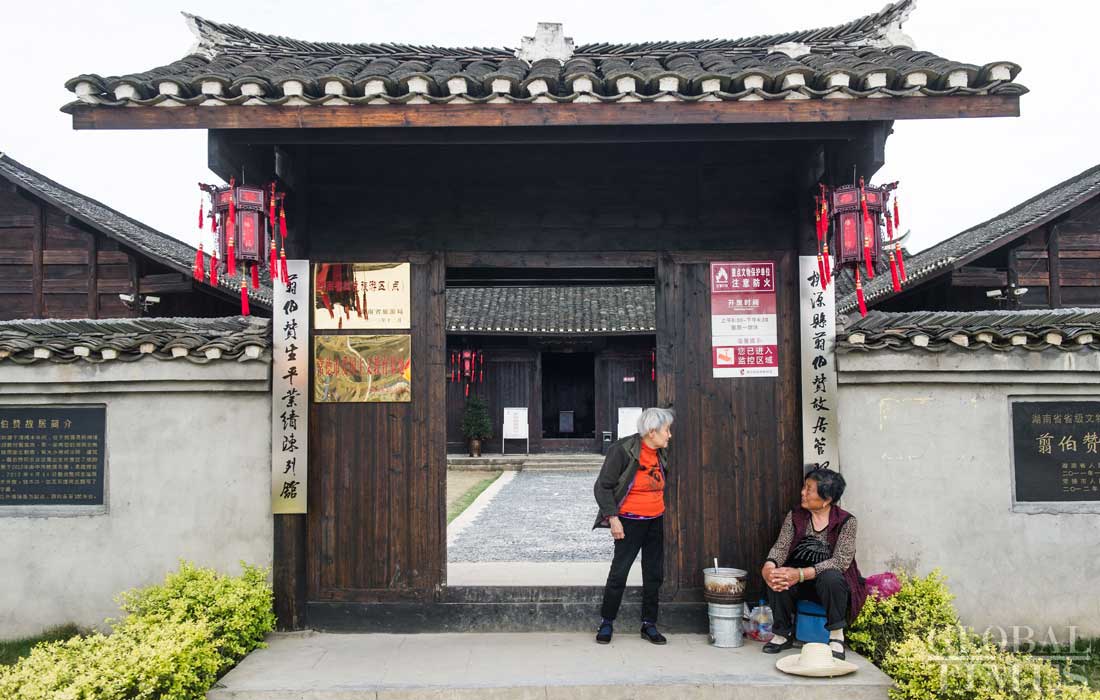 Local villagers chat outside the former residence of Jian Bozan (1898-1968), a prominent Chinese Marxist historian. Photo: Li Hao/GT
Local villagers chat outside the former residence of Jian Bozan (1898-1968), a prominent Chinese Marxist historian. Photo: Li Hao/GT 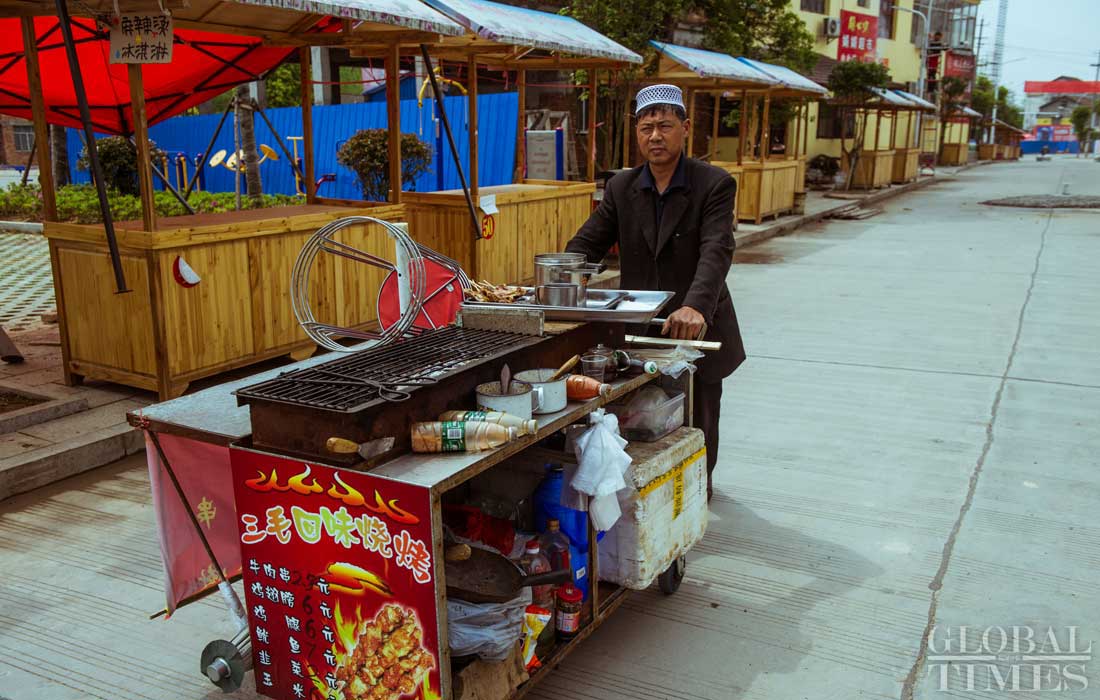 A vendor pushes a food cart at a "national unity" park in Fenshu of Taoyuan county, Hunan Province.
In 2012, the Taoyuan government has started a large program to build the "national unity" park with a planned investment of 480 million yuan ($77.3 million), including building a flower and folk culture garden, expanding the township's mosque, remodeling houses in a traditional Uyghur style, and renovating the residence of Jian Bozan. Photo: Li Hao/GT
A vendor pushes a food cart at a "national unity" park in Fenshu of Taoyuan county, Hunan Province.
In 2012, the Taoyuan government has started a large program to build the "national unity" park with a planned investment of 480 million yuan ($77.3 million), including building a flower and folk culture garden, expanding the township's mosque, remodeling houses in a traditional Uyghur style, and renovating the residence of Jian Bozan. Photo: Li Hao/GT 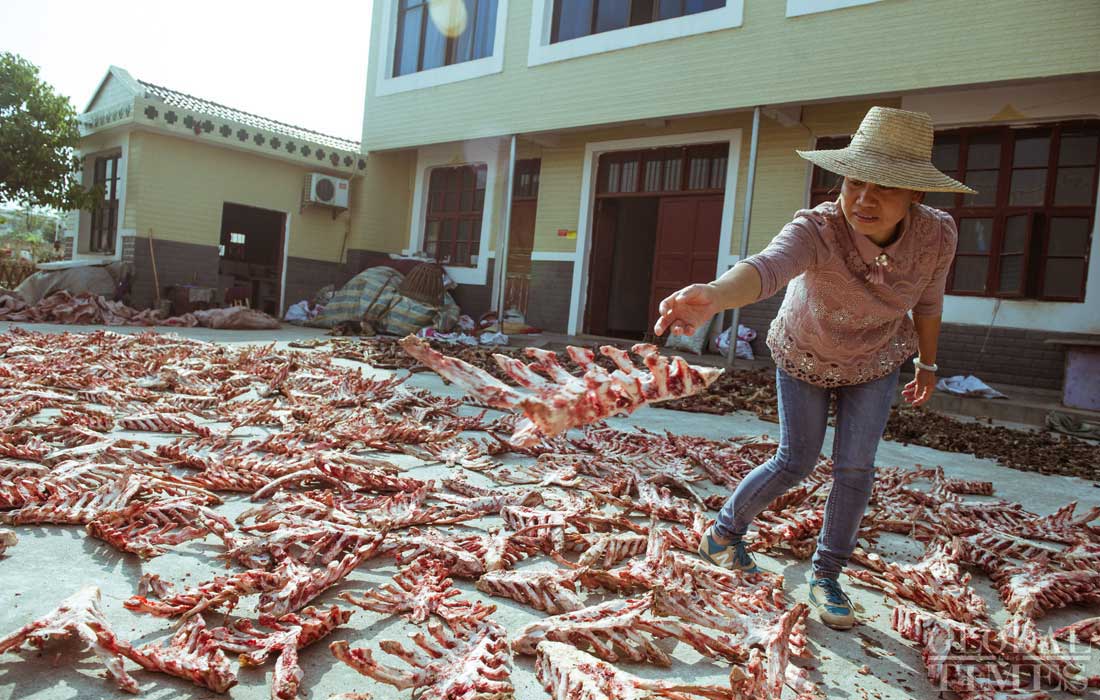 A local woman works to dry beef cartilage in front of her house. The dried cartilage is purchased regularly by local merchants. It is then exported overseas to be used in calcium supplements. Photo: Li Hao/GT
A local woman works to dry beef cartilage in front of her house. The dried cartilage is purchased regularly by local merchants. It is then exported overseas to be used in calcium supplements. Photo: Li Hao/GT 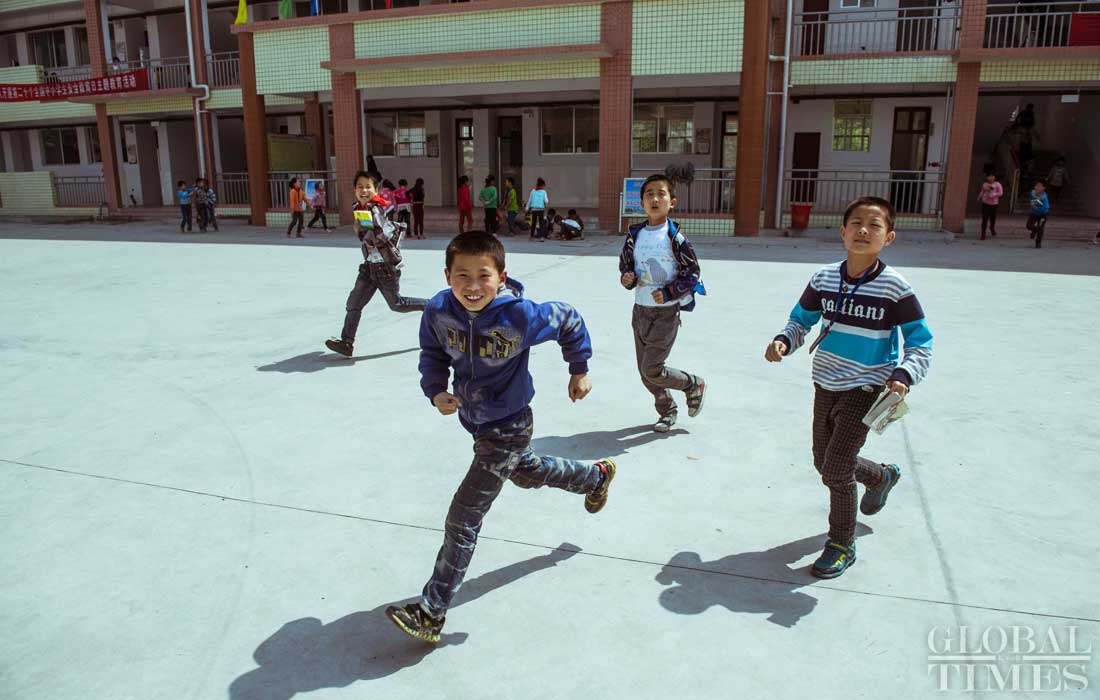 Kids from several ethnicities, including Uyghur, play together at an elementary school. Many old men in the township hope their offspring can follow basic Muslim customs. Photo: Li Hao/GT
Kids from several ethnicities, including Uyghur, play together at an elementary school. Many old men in the township hope their offspring can follow basic Muslim customs. Photo: Li Hao/GT













